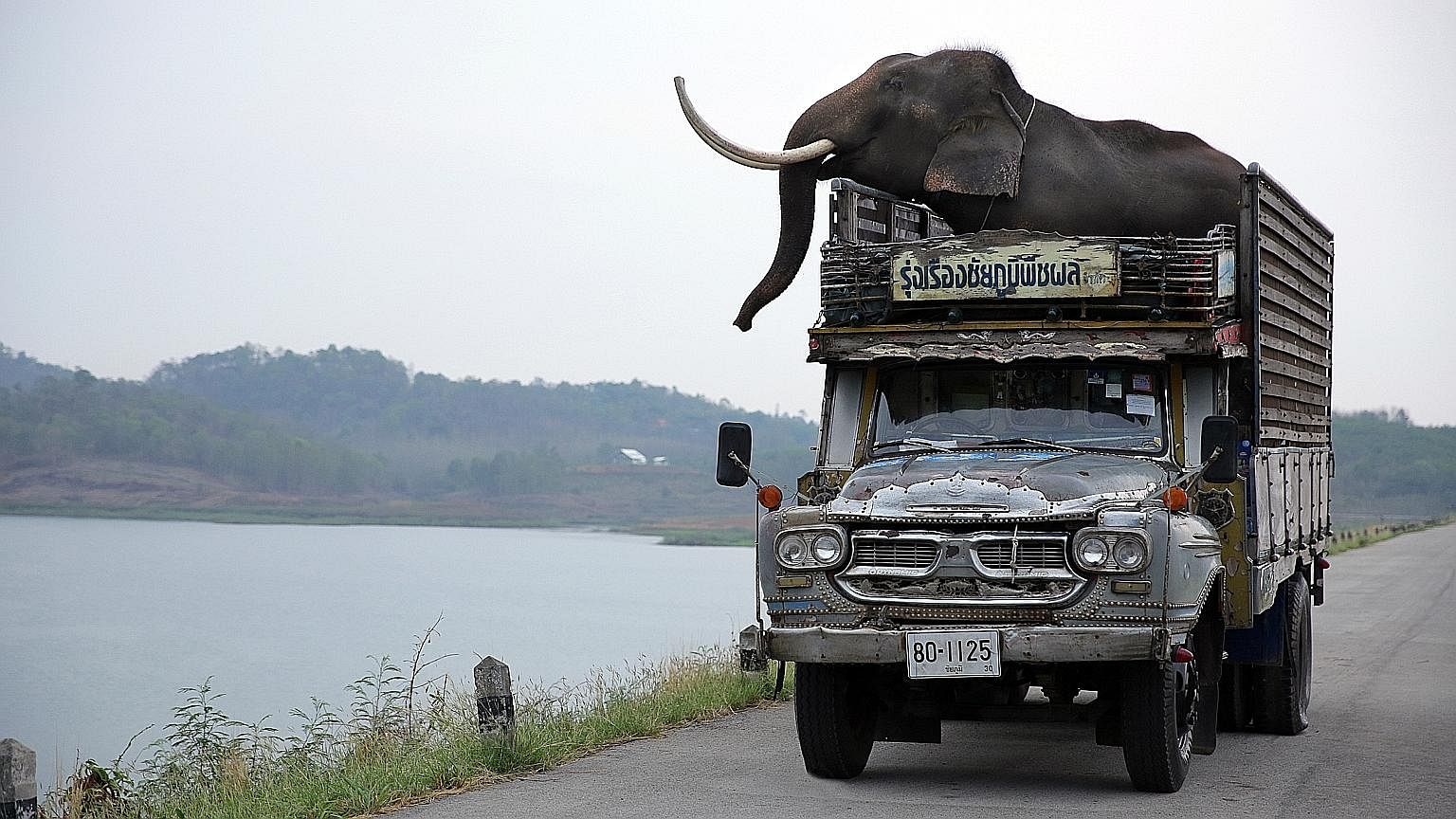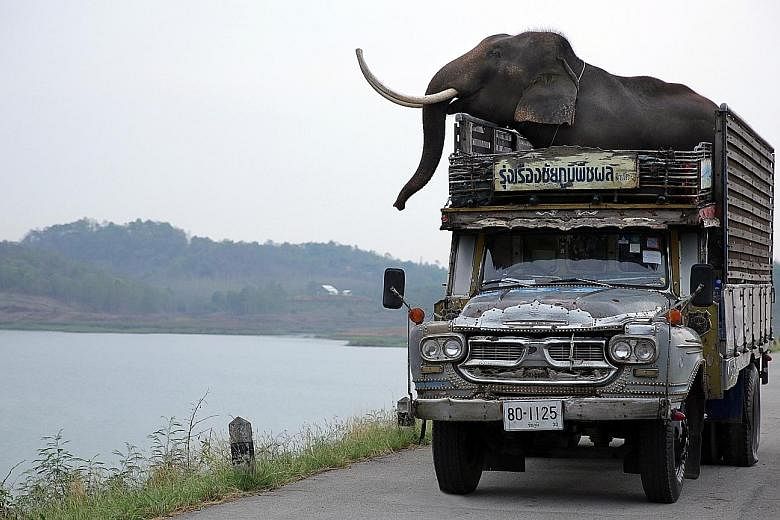Let me start with a story. Many (of you) may already be familiar with the story of Kirsten Tan, one of Singapore's most renowned film-makers. There are so many aspects of her story that are relevant to our education system.
Kirsten had always wanted to make films, but her parents, in her own words, "die die wanted her to go to a university". So she went to study literature at the National University of Singapore, but never gave up on film. At NUS, she set up her own studio and production house. She made a film that she said was so bad, even she didn't know what it was all about.
After NUS, she went to Ngee Ann Polytechnic, to do an advanced diploma in film production. Finally, she got to do what she was passionate in. She made two more films - and this time, they won awards at the Singapore International Film Festival. Later, one of her films - Pop Aye - won a Special Jury Prize at the Sundance film festival. It was a moment of great pride and joy for her, her family, as well as for Singapore.
Today, she gets gigs from all over the world, many in New York where she is based. Her parents have come round to support her career as a film-maker.
I tell this story because of the contradictions she has to deal with in this new world. Kirsten's story is one of pragmatism and passion; of meeting parents' expectations but still chasing your own dream; of lifelong upgrading yet not conforming to the notion that what follows a degree must be a master's degree or a PhD; of venturing beyond Singapore while remaining Singaporean at heart. It is a story about what education can and should do for Singaporeans, for all of us, across every field.
We have an effective and internationally well-regarded education system. But sometimes a great strength can also be a weakness. It gives rise to a temptation to just tinker around at the edges, instead of making more fundamental but necessary changes.

I believe that we are at the threshold of major changes in our society and economy. We need to also transform our higher education landscape in response.
We need to make five important shifts as part of this transformation.
First, besides being a pathway into good jobs and lifelong employability, education also needs to be a journey to fulfil hopes and aspirations. The two need not be at odds with one another.
Second, education and learning need to be lifelong. But we must recognise that the learning needs and habits of adults are vastly different from that of students. Adult training needs to be bite-sized, relevant, concise, convenient, and to the point.
Third, education must impart skills, not just information and knowledge. This is for a simple reason - because information can be "Googled", skills cannot. Whether you are performing surgery, coding a complex IT program, cooking for your customers, repairing a car, negotiating effectively, or working in a team with people of different cultures - all these are skills.
Fourth, "learning by doing". We are used to the idea of "learning for doing" - study a few years, before stepping into the workforce and working as a professional, a manager or technician. But technical and cognitive abilities can also be gained through actual experience. This method has underlined centuries of European apprenticeship and craftsmanship the world over. It is more important and relevant than ever today.
Fifth, help Singaporeans adapt to a data-rich and digital working environment. Not everyone needs to learn to code or be an IT expert. But we must all be comfortable and competent working in a digitally-enabled environment. In other words, we must be data-enabled as a workforce.
These shifts are the building blocks of transformation.
The changes will take place over the next five years, but will set the stage for our continued progress for the next 20.

TOUGHEST CHALLENGE: MINDSETS OF PARENTS, EMPLOYERS
In carrying out this plan, what is the toughest challenge of all?
It is changing mindsets - the "die die must do it this way" kind of thinking.
First, all of us - parents, students, educators - we will need to move our focus away from a relentless pursuit of academic grades, to the larger view of human development. As my colleague Minister Ng Chee Meng said, it is about the joy of learning, entrepreneurial dare, moral grounding, and holistic development. It is not possible to change the system overnight, but we are making important adjustments in the school system to catalyse this shift.
Second, employers must likewise do the same. Hire based on interest, skills, and cultural fit, and not just based on grades and qualifications. Because the Ministry of Education (MOE) can say all we want about dialling back from an overemphasis on academic grades, but our message will ring hollow, unless employers can demonstrate that good jobs need not necessarily come from good grades.
Third, society needs to recognise and celebrate a wide range of successes - not just managers and leaders, but also entrepreneurs, craftsmen, technicians, sportsmen, artists. Step by step, I think we are getting there.
Let me put into context the mindsets we inherited that are so hard to change.
Forty years ago, for every Primary 1 cohort, about 5 per cent went to university. About 65 per cent of Primary 1 students passed the PSLE. The university's mission at the time, if I may put it starkly, and at the risk of some caricature, was to make sure that we produce graduates to support Singapore's economic growth.
That was a pragmatic generation, which had to fight for collective survival. They realised the importance and critical need for education, and hoped for their children to achieve good grades and attain good qualifications. To a large extent, many of the current generation of parents still think that way.
Today, times have changed. For a Primary 1 cohort, over 98 per cent pass the PSLE, 33 per cent go to university and graduate. Make no mistake, our goal must still be to fit graduates to an economic purpose - no one wants to graduate and not be able to find a job. But in this new era, our children have new ideas too.
They don't want to be on a treadmill constantly chasing after good grades. Many people are like Kirsten, who wants to express herself through film-making, and can make a living doing it because she is very good at it.
So our PSEIs (post-secondary education institutes) today must have an additional mission, to uncover and develop diverse talents, and help our young realise their dreams.
I am sure that when our children grow up and become parents, they will believe in multiple paths towards success.
They will want their children to go through an education experience that recognises their different individual strengths. But by then, times will have changed further, and their children will again have different ideas. And they will be saying that their parents have very fixed mindsets.
Every generation that comes of age will transform and remake the society it lives in. That is how we progress, and education is there to help us along. That is why MOE's mission is to mould the future of Singapore.
Today, perhaps we are at the starting line of a time of change and transformation.
It is up to us today, to create these multiple paths and new opportunities, which will take us to many different places, but arrive at a common future - a Singapore of many talents, on a united yet multi-faceted journey of one people, and one country.

